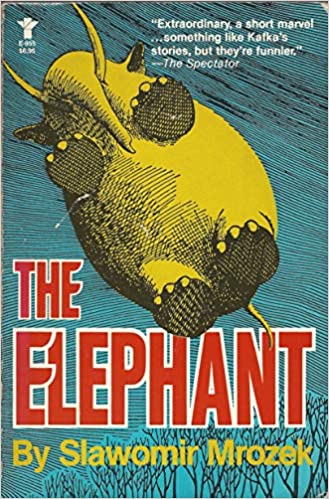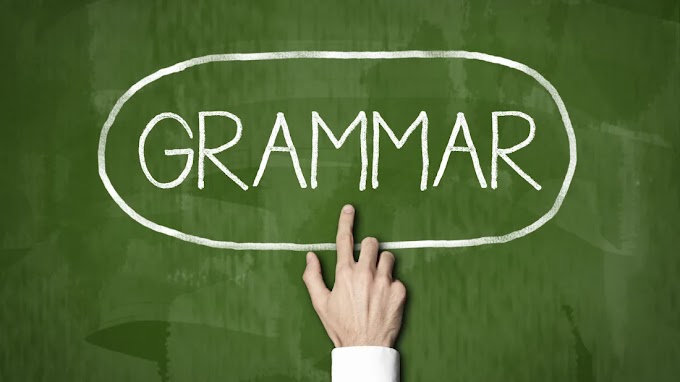Formal and Informal Language
The difference between formal and informal English is
not a difference between correct and incorrect, but a difference
of what is known as register. A register is a variety of language
related to a particular subject matter or area of activity, a set of words and
expressions as well as syntactical features that may be said to characterise
that specific area of language.
In writing academic reports and the like, it would be
normal to draw most of the vocabulary and expressions from the formal register,
and few, if any, from the informal.
Formal Language
Although English
does not have a strong set of rules for formal language, speakers
need to be careful how they speak in different situations. Formal
language is often used in official public notices, business
situations, and polite conversations with strangers. Formal
language has stricter grammar rules and often uses more
difficult vocabulary.
Informal Language
English is often
spoken informally especially in the States, Canada, and Australia. Informal
language is all right for friends, co-workers, host family, or
service staff (at a restaurant for example). Informal language
has less strict grammar rules and often has shortened sentences.
Examples I
|
Informal
|
Formal
|
|
They did an
experiment
|
The experiment was carried
out / reformed by them
|
|
Then the Drive Manager goes through
some steps to install the programme
|
The Drive Manager then performs
/ executes a series of functions / operations in order to install
the programme
|
|
One after the other
|
At regular intervals
|
|
They found out
what the important things were
|
They determined /
discovered / established / identified the important properties
/ characteristics / issues
|
|
You can find out all about the
survey on page 7
|
Details of the survey
are to be found on page 7
|
|
We think you should
discuss the research findings at
the next departmental meeting
|
It is recommended that
the research findings are discussed at the next departmental meeting
|
|
Doctors have come up with
a new method of….
|
Doctors have created /
established a new method of….
|
|
Safety officers are looking
into the problem
|
Safety officers are investigating
the problem
|
|
The cost of cleaning services
has gone up 25% over the last three years
|
The cost of cleaning services
has risen by 25% over the last three years
|
Example II
|
Informal
|
Formal
|
|
We do not think it is a
good idea to do anything at the moment
|
It is suggested that no
action should be taken at this stage
|
|
Many thanks to the staff at “Computers R Us” for their help on the technical side
|
Thanks are extended to
the staff at “Computers
R Us” for their technical support
(Slightly less formal: We
would like to thank ….)
|
|
You need to get the
patient’s help when doing these hearing tests
|
When conducting these
audio logical tests, the active participation of the patient being tested is
required.
|
|
There were no big
differences between
the three different groups we tested
|
No significant
differences emerged between the three different
groups tested
|
|
A lot of
|
Many / much / a great
deal of
|
|
This seemed to fix
the problem
|
This appeared to rectify
the problem
|
|
Enough
|
Sufficient
|
|
This shows that …
|
This demonstrates…
|
|
Numbers are going up
|
Numbers are increasing
|
|
They put the plan
into action
|
The plan was implemented
/ carried out
|
|
This let them keep the
same temperature during the whole experiment
|
This allowed / permitted
/ resulted in / ensured a constant temperature
throughout the experiment / for the entire experiment
|
Exercise
Rewrite
the sentences in a more academic style using verbs from the list below. Note
that you may need to change the verb tense.
Investigate,
assist, raise, discover, establish, increase, eliminate
1. Systems
analysts can help out managers in many different ways.
2. This
program was set up to improve access to medical care.
3. Medical
research expenditure has gone up to nearly $350 million.
4. Researchers
have found out that this drug has serious side effects.
5. Exercise
alone will not get rid of medical problems related to
blood pressure.
6. Researchers
have been looking into this problem for 15 years now.
7. This
issue was brought up during the coroner's inquest.
Using
Formal and Informal Language Appropriately
Art
Imitates Life
· In writing, formal and informal language work in a similar way…………………
to influence tone, which in turn speaks to your audience?
Tone
Tone
is defined as the writer’s attitude toward the subject matter and his or her
readers.
Audience
The
audience is your reader or listener– the recipient of your verbal or written
communication.
Diction
•
Diction is word choice
•
Word choice is important in establishing tone
•
Three levels of diction:
– 1.
high or formal diction
– 2. neutral
diction
– 3.
informal or low diction
Characteristic
of Formal and Informal Language
Formal Informal
serious
light
objective
humorous
impersonal personal
reasoned
casual
controlled offhanded
reserved "loose" , plainspoken, simple
Why
does it even matter?
· Official or serious situations are often signaled by the use of
formal language, while ordinary or relaxed situations are signaled by the use
of informal language.
· Formality of language varies in relation to such factors as public
versus private occasion, the size of the audience, the
relationship of the speaker/writer with the audience, and so on. The
ability to vary your language according to the situation is often considered a
mark of an educated person.
What makes INFORMAL language?
•
Simple grammatical structure
•
Personal evaluation
•
Colloquial or slang vocabulary
What makes FORMAL language?
•
Formal language, even when spoken, is often associated with the
conventions expected of written Standard English.
•
Although you generally don’t worry as much about formality in
speaking, it is extremely important in writing because of the knowledge you are
recording through the written word.
What makes formal language (continued)?
•
Formal language does not use contractions
•
Avoids personal pronouns such as: you, I, us, me, and we
•
Includes more polysyllabic words—BIGGER words
•
Complex, complete sentences
•
Avoidance of colloquial or slang vocabulary
•
Impersonality
•
A consistent preference for “learned” words
What to avoid in formal writing………………..…..…
•
Exclamation marks
•
Needless words like “well” and “you know”
•
First and second person point of view
•
Beginning sentences with coordinating conjunctions
•
Too many short, choppy sentences that could be combined to make
more complex sentence structures
What to avoid in formal writing………………………….
•
Avoid most shortenings in formal writing. In formal English, you
talk on the “telephone,” not the “phone”
•
Know what acronyms may be used in your writing. In formal English,
you should limit your use of acronyms, abbreviations making use of letters that
stand for certain words
•
Similarly, limit your use of absolute terms, such as
"everybody," "always," "never"
•
Avoid cliché’s, stage directions and colloquialisms
Gerund and Participle
Every gerund, without exception,
ends in ing. Gerunds are not, however, all that easy to identify. The problem
is that all present participles also end in ing. What is the difference?
Both Gerunds and Participles are verbal; that is, they are
both formed by adding +ing to a verb and both express action or a state of
being. The difference between the two lies in their function within the
sentence.
Gerund has the same
functions as Nouns in sentences. They can be single words or gerund
phrases.
Unlike Gerunds,
which function as nouns in sentences, Participle can function as Adjective
in sentences. The examples and exercises in this activity focus on present
participles, which suggest action and come from active verbs. As adjectives,
participles modify nouns or pronouns.
Examples of Gerund:
Since Francisco was five years old, swimming has been his passion.
Francisco's first love is swimming.
Francisco enjoys swimming more than spending time with his girlfriend Diana.
Francisco gives swimming all of his energy and time.
When Francisco wore dive fins to class, everyone knew that he was devoted to
swimming.
Note: Swimming in all the above examples functions as a noun that’s why
Swimming is a Gerund
Examples of Participles:
One day last summer, Francisco and his coach were swimming at Daytona Beach.
A Great White shark ate Francisco's swimming coach.
Now Francisco practices his sport in safe swimming pools.
Note: Swimming in all the above examples functions as Modifiers
that’s why swimming is a present participle
(Modifiers are words, phrases, or clauses that provide description in
sentences.)
More Examples of
Gerund:
Subject Gerunds:
Learning is a lifelong process. .
Learning to speak and write English well takes a lot of
practice.
Direct object Gerunds:
Bertha hates shopping. She'd rather
save her money.
She prefers putting her money in a savings account.
Gerunds as objects of prepositions:
James is not known for studying
He failed his last exam on identifying the parts of speech.
Subject complement Gerunds after linking verbs:
All summer long, Lisa's favorite pastime has been surfing.
Meanwhile, her younger brother's favorite activity has been surfing the
internet.
More Examples of Participle:
Adjective + Noun:
I was awakened by the screaming child. (The participle modifies child.)
Subject + Linking Verb + Adjective complement:
The horror film was extremely frightening. (The participle modifies horror
film).
Participial Phrase:
The police noticed the thief hiding on the rooftop.
(The participial phrase modifies
thief).
Introductory Participial (Adjective) Phrase:
Looking for a place to hide, the thief climbed the fire escape to the rooftop.
Verbals: Gerunds
You have learned that a
participle is one kind of verbal. Another kind of verbal is a gerund.
n Bowling is a very old
sport.
n Gardening is a satisfying
hobby.
n Collecting baseball cards
can be a lucrative pastime.
A gerund is the present
participle of a verb (the –ing form) used as a noun.
n In a sentence a
gerund can function in all of the ways that a noun does.
n Subject: Reading
is my favorite activity.
n D.O. : I enjoy reading.
n Object of
Preposition:
Today is a good day for reading.
n Predicate Noun: My favorite
activity is reading.
n To determine
whether a word ending in –ing is a verb, participle, or gerund, you must see
how the word is used in the sentence.
First find the simple subject and
the simple predicate. They will help you know whether a word is a gerund.
n Cora and Andy
are running in tomorrow’s big race. (Running is part of the verb phrase
are running)
n The running water
overflowed. (Running is a participle, modifying the subject water)
n Running is both a fun
and healthful exercise. (Running is the subject of this sentence. It is a
gerund)
Find each gerund in these
sentences. Is it used as a subject, D.O. , object of a preposition, or a
predicate noun?
1.
Sketching
is fun for me.
2.
Marya
exercises everyday by swimming.
3.
Her
other leisure activity is painting.
4.
She
and I are singing in the chorus tonight.
5.
Of
all my interests, I care most about reading.
6.
Traveling
comes second or third on my list of favorites.
7.
What
is the most interesting hobby for you?
Find each gerund in these
sentences. Is it used as a subject, D.O. , object of a preposition, or a
predicate noun?
8. A hobby can
be anything from fishing to painting.
9. Few things
are better for relaxing than a satisfying hobby.
10. Some people
enjoy gardening whereas others prefer reading.
11. Gardening
gloves protect the hands of those who do yard work.
12. Many people
find pleasure in painting, sculpting, or carving.
Find each gerund in these
sentences. Is it used as a subject, D.O. , object of a preposition, or a
predicate noun?
13. Practical
hobbies include sewing, building, and cooking.
14. Skating,
skiing, and swimming are some healthful hobbies.
15. Reading about
faraway places is satisfying to many people.
16. People of
all ages relax and get in shape by jogging.
17. In-fact,
running has become a hobby as much as an exercise.
Find each gerund in these
sentences. Is it used as a subject, D.O. , object of a preposition, or a
predicate noun?
18. Winston
Churchill, a former Prime Minister of Great Britain, liked painting and writing.
9. Collecting
was President Franklin D. Roosevelt’s hobby, and he acquired an amazing stamp
collection.
20. President
Dwight D. Eisenhower’s favorite kind of exercise was golfing.









0 Comments